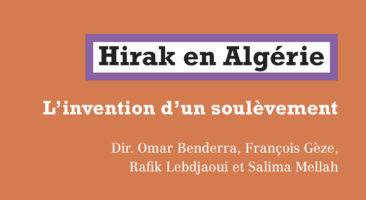Civil harmony breeds public Discord
Algeria Interface, November 2, 1999
As the Algerian government publicly congratulates itself on its Civil Harmony Act, there is widespread scepticism about numbers of terrorists turning themselves in and how impartially such divisive legislation can be enforced.
Algiers, 02/11/99 – Since the Civil Harmony Act became law, the Interior Ministry has, with much pomp and circumstance, organised two press conferences to announce the numbers of « the strayed » – officialese for « repentent terrorists » – who have given themselves up.
The manner in which the authorities trumpet abroad the so-far unimpressive numbers of terrorists turning themselves in ill conceals official misgivings about the how effective the law really is on the ground.
Cartoonists and commentators have been having a field day at the expense of officialdom’s « repentent counters ». Maximum promotion of the act, driven by the indefatigable President, has yielded minimum effect. There can be no workable, meaningful yardstick to measure the numbers of those giving themselves up because of the lack of accurate, reliable information as to how many terrorists are still active, or how many members of the AIS (the military wing of the FIS) are observing a truce.
Killing overshadows repentance
What’s more, in recent weeks, the widely reported attacks against the security forces and racketeer road blocks in Central Algeria have totally overshadowed the meagre successes of the plan for civil peace and harmony.
After a 31/2-month long media blitz, some 1,000 « repentant » terrorists have benefited from the provisions of the new law, according to figures just released by the Interior Ministry. The number is difficult to verify, as the repentants are shielded from the public gaze both by the authorities and by their families.
Algeria has not experienced a great surge of repentance, forgiveness and reconciliation. And the way in which the act was put together accounts in part for this. The agitated debate which went on in legal circles saw many lawyers and magistrates complain that they had not been asked to help draw up this crucial, highly sensitive piece of legislation, stressing that it contained numerous points they felt were obscure.
A two-tiered law
Some openly stated their puzzlement at its two-tiered nature. They pointed out that while the authorities « belly-dance to the murderers in hiding », thousands of prisoners still languished behind bars even though the act provides for their immediate and unconditional release. Indeed, under the terms of the act, particularly Articles 36 and 37, they are being held arbitrarily.
What’s more, at recent ceremonies celebrating Independence Day, the President announced that some 5,000 prisoners convicted on terrorist grounds would be pardoned. Yet less than half that number has been released to this day. As a result, the doubts have been cast on the credibility of presidential promises. Where there could have been appeasement, there is now deep resentment. Initial enthusiasm at the news prisoners were to be released has swiftly waned, fuelling a far more acute sense of distrust in Islamic circles.
Daikha Dridi

